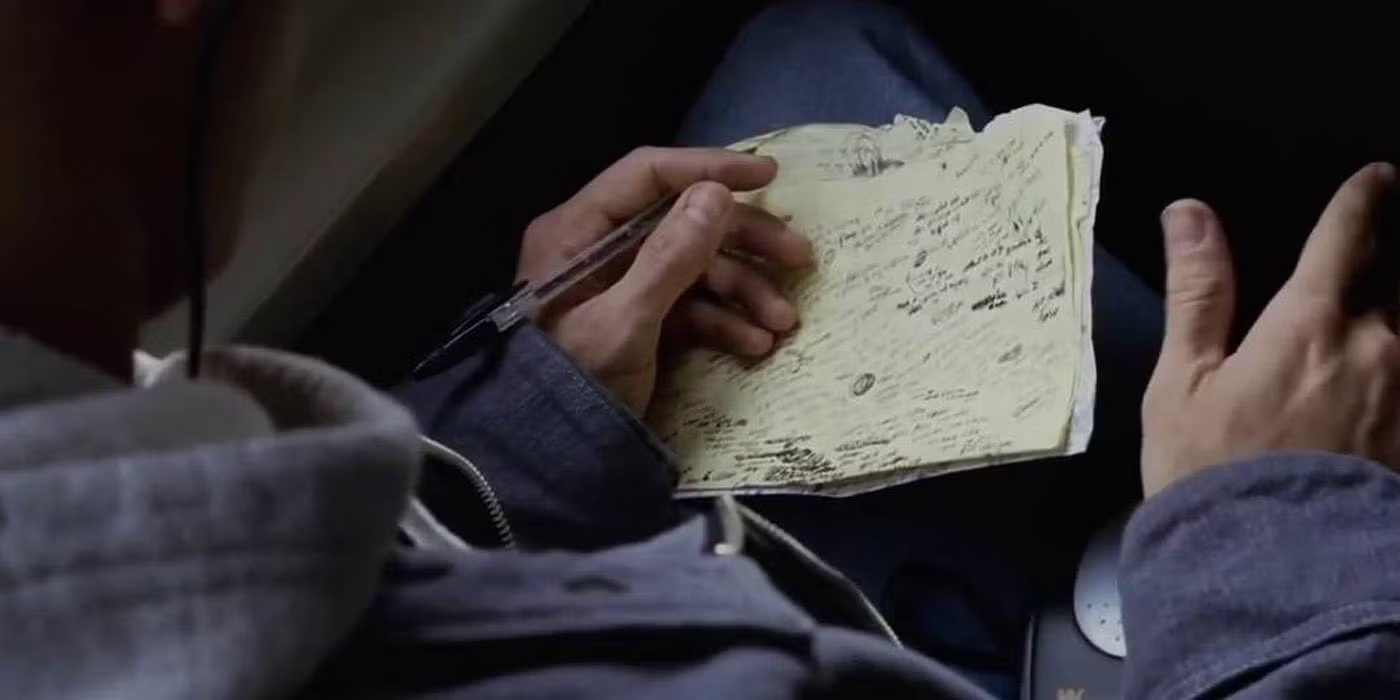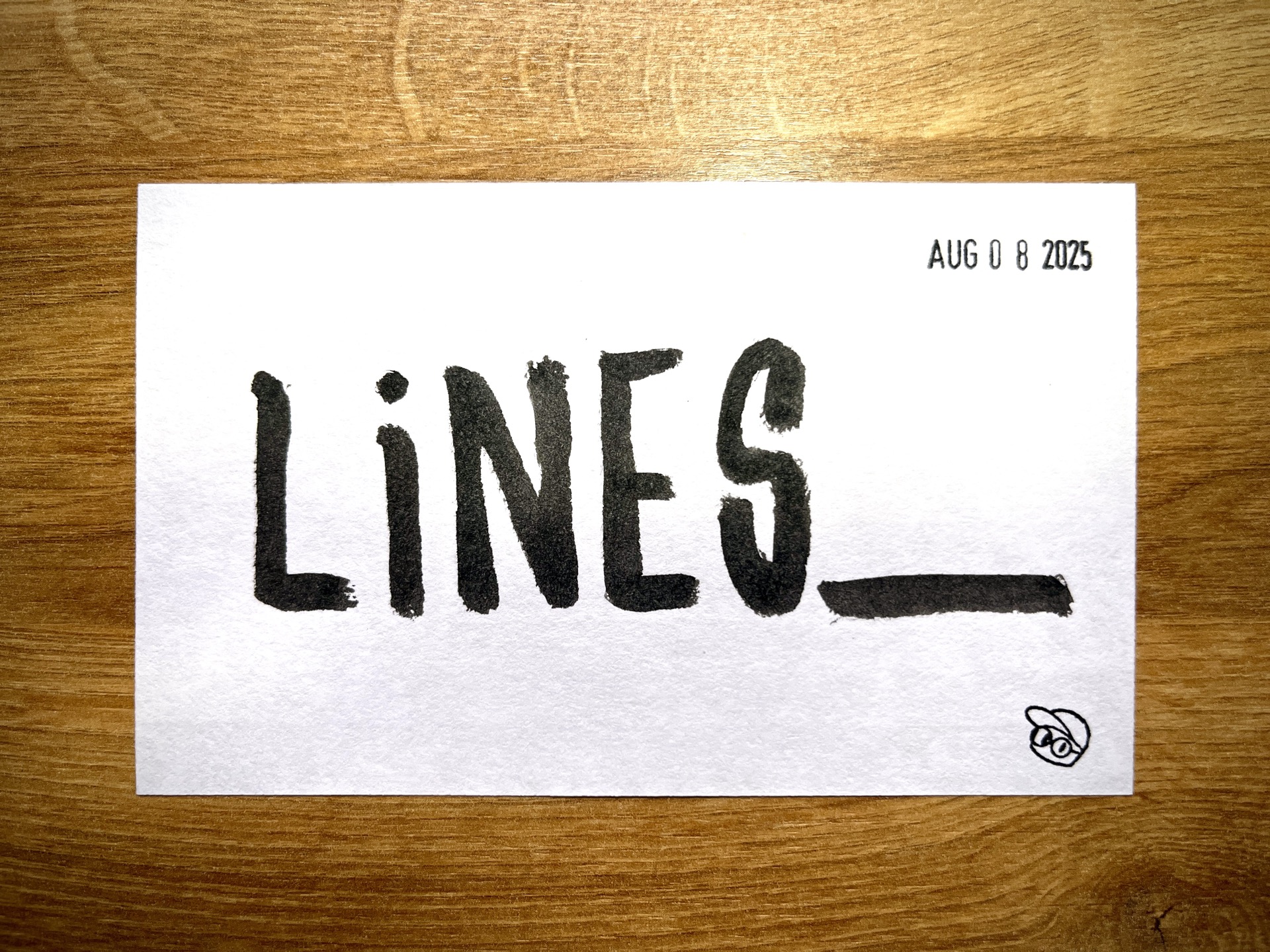Sometime, maybe 15 years ago, I was on a TTC bus one evening headed to work. At the time, I worked the dinner shift for a historical diner in downtown Toronto.
During these bus rides, I’d cycle through music, audiobooks, and interviews on my 1st-generation iPod touch. (iPhones weren't really a thing in Canada, back in those days — if you can believe it. This was just past the era where iPhones were US-bound and AT&T locked.)
Class Clown
That night, I had an interview queued up. Not one of George Carlin’s HBO specials — but George Carlin on Comedy, from laugh.com (2002).
(Warning: Strong language)
They talked about writing. The process. The craft. How to sculpt a single line until it gleams — decoration, rhythm, surprise — so it sticks in your head and won’t let go.
The realization hit me — words are a material you can shape. You can bend them, flip them, sculpt them. Give a phrase rhythm as well as meaning, so it moves in the ear before it settles in the mind.
I’d watched Carlin's HBO specials. I knew he was amazing. But hearing him explain how he built those bits made me realize just how much care, precision, and deliberate play lived inside his routines. In his lines. In his words.
Lose Yourself
Carlin’s perspective made me think of another moment — that scene in 8 Mile (also 2002) where Eminem’s character is scribbling in a battered piece of paper, working through scraps of words that would eventually become “Lose Yourself.”

A few years later, I saw a YouTube breakdown of its rhyme scheme. That’s when I really lost myself.
---
Sidenote: I’m not a big rap listener. Nothing against it — it’s just not my go-to. But I deeply respect the art and craft. Back to the post.
---
I had no idea how much intricacy could live in just a few lines. That video, combined with Carlin’s interview, planted a seed:
Someday, I’d try my own experiments with words. Not just to communicate — but to build something with them.
Favourites
Fast forward to now.
Anytime I write, I’m hunting for those lines. The ones you can’t stop thinking about. Sometimes a whole post is born from a single one.
And funny enough — even in the age of AI-assisted writing (GPT-5 dropped yesterday), my favorite lines are always mine. No machine wrote them. In fact, AI often tries to cut them, and I have to shove them back in.
Below are some of my recent favourites.
---
Sidenote: I use AI for all of my posts. It acts more like a smart spell checker vs. a ghost writer. More on that in a post sometime in the future I suppose. Back to the post!
---
“Because I don’t want the chase of make-believe internet points to take away from the points I’m trying to make.” (Titles, August 7, 2025)
I really love this one. The double use of “make” — rhyming with “take” — gives it a nice internal echo. But it’s the reuse of “points” in two completely different meanings that makes it sing. I’m always looking for opportunities to do this — to bend a word so it plays two roles in the same sentence. Bonus points (pun fully intended) when I can do it more than once.
“We all have our own ‘12,000.’” (Mountain, August 6, 2025)
This one is subtle, but it’s one of my favourites. Turning a number into a thing. Not just a count, but a symbol. You can feel the weight of it — not just the sheer volume, but what it represents: that looming, overwhelming task we’ve been avoiding. The mountain you know you’ll have to climb.
“I didn’t want these mundane — maybe mildly interesting — moments to slip away… after experiencing one too many ‘I can’t remember’s.” (Remember, August 4, 2025)
This one’s all about the letter “m.” Mundane. Maybe. Mildly. Moments. Memory. Sometimes the magic isn’t in the meaning — it’s in the music. The rhythm you can feel when certain sounds weave together. That’s what makes this one feel like it hums under the surface.
“Maximum autonomy. Manageable bandwidth.” (Autonomy, August 2, 2025)
I love distilling something big and complicated into a bold, two-line punch. This one feels almost like a proverb — short, sharp, and balanced. It reminds me of the symmetry and wisdom packed into traditional Chinese four-character idioms. Clean. Memorable. Meant to be repeated.
“It offered a new perspective on the things we carry… and the things that quietly carry us.” (Anchor, August 1, 2025)
This one is an inversion — a flip. The symmetry of the structure mirrors the meaning itself. And the ellipsis in the middle acts like a hinge, a pause that gives the second half more weight. It’s a gentle turn, but one that makes the thought linger.
“To do something not bad to make your day — or someone else’s — a little bit better.” (Inverse, July 31, 2025)
Here, I was playing with repetition and subtle inversion. Something / someone. Bad / better. The cadence is conversational, but there’s a loop in the language that I like. I can already see ways to tighten it further, but even as it stands, it carries that back-and-forth rhythm I aim for.
“Where autopilot is earned, yet coasting is denied.” (100, July 20, 2025)
I love four-word pairings. The contrast between “earned” and “denied” makes it bite, while “autopilot” and “coasting” give it a strong visual pull. It’s abstract, but you can picture it — and that combination of imagery and tension is what makes it stick.
Wordplay
These are just a few of my favourites from the past months. Tiny artifacts of my mornings — proof of the attention I put into not just titles, but lines, words, even letters.
It’s the craftsmanship of wordplay. Something Carlin and Eminem cracked open for me all those years ago.
The way I see it, these lines aren’t just for me.
I keep them, polish them, and put them out into the world — hoping they might land for someone else the way Carlin’s and Eminem’s landed for me.
Because sometimes a good line doesn’t just get read. It gets re-read. It makes you stop, double back, and break it apart in your head. You turn it over. You notice the edges. You feel the weight.
And when that happens — that’s magic.
Maybe it sparks a thought. Maybe it shifts the way you see something. Maybe it nudges you to sharpen your own words until they could stand the test of time.
That’s the beauty of a good line.
And when you pass it on, it keeps moving — long after you’ve put down the pen.
